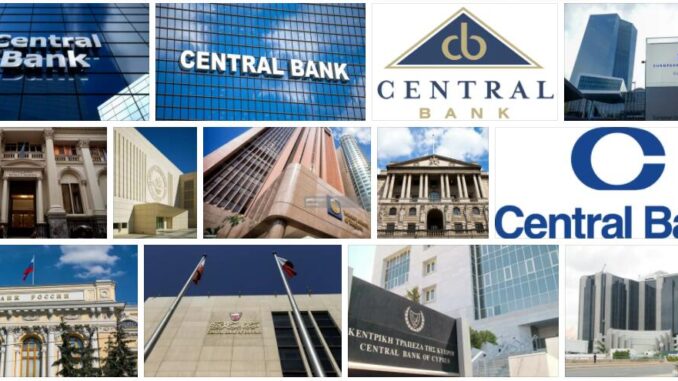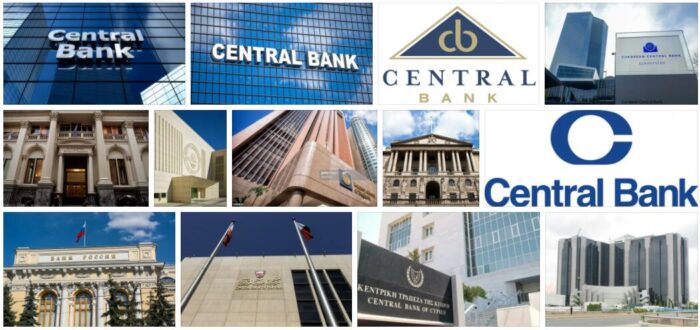
Bank is a term with several meanings. In this opportunity we are interested in the a bank as a financial entity whose function is to manage money. These institutions, which emerged in the Renaissance, are responsible for providing services such as the loan of capital or the deposit of securities.
Central, on the other hand, is what belongs to or relative to the center. This concept can refer to the basic or essential of something, the space where coordinated actions converge or that which is in the middle or in the center of something.
The central bank, therefore, is a type of bank that acts as the entity responsible for the monetary policy of a nation or a group of nations. Due to its characteristics, this bank operates very differently from the rest: it interacts with the State and with other banks and not with private clients, for example.
In some countries, the central bank is an entity independent from the government of the country to which it belongs. It is a public institution regulated by statutes and laws and whose benefits are derived to the State.
However, despite the fact that it is an independent institution, it should not be forgotten that the relevant central bank has a series of obligations and duties with respect to what is the Government of the State or States to which they belong. Specifically, they must inevitably fulfill three tasks:
• It is essential that they be accountable for what the management they have been carrying out would be. For this reason, each year it must present not only a report where its account balance is recorded, but also where it gives known details of all the activities that it has carried out as well as, in the same way, of the monetary policy that it has been following.
• Another obligation that every central bank has with respect to the government is to be totally transparent. Avoiding any type of regular action as well as cases of corruption is what is sought to achieve with this duty. To this end, the aforementioned financial entity makes available to it as well as to the public the information concerning its decisions, procedures and strategy that it has been undertaking.
• Likewise, it should not be forgotten that it is especially important that the central bank also has the obligation to distribute the benefits that are obtained, once all the expenses it has in terms of personnel, costs of what would be its maintenance, have been discounted. the preparation of annual reports…
Examples of financial institutions of this type include some such as the European Central Bank, the Central Bank of Chile or the Central Bank of the Argentine Republic.
One of the most important functions of a central bank is the issuance of legal money (in fact, it is the only entity authorized to do so). The central bank is also in charge of managing interest rates (to maintain price stability and safeguard the value of the currency), granting loans to commercial banks or States, guarding gold and foreign exchange reserves, and advising the government. in economic and financial matters.
